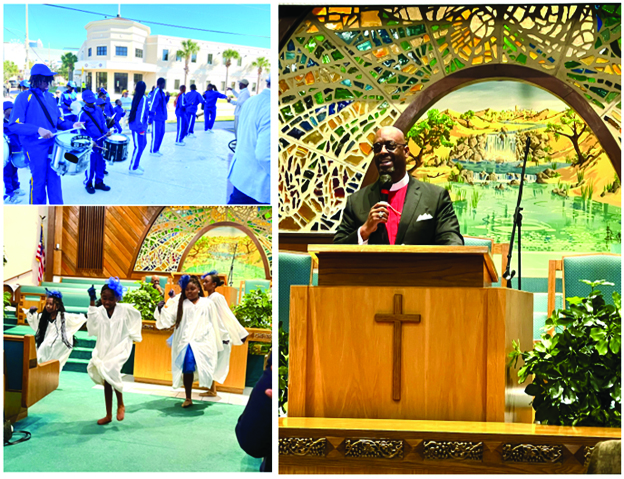BY HARRY COVERSTON, GUEST WRITER TO THE TIMES

ORLANDO – On January 12 the City of Orlando commemorated Martin Luther King, Jr. with a marching drum corps, dance teams from local churches, inspired words from civic and clerical leaders and rousing hymns. The Shiloh Baptist Church sanctuary was packed for this interfaith/multicultural celebration of the life of one of America’s “better angels.”
It’s hardly surprising that King would be remembered in such a dynamic fashion. His time in Orlando in the 1950s was reflected by the photo of his preaching at Shiloh. But his impact on the world far exceeded his renowned preaching skills, placing him in a category attained by only a handful of human beings in history.
To conclude the celebration, eight leaders from diverse faith traditions ranging from Hinduism to Judaism as well as the non-religious humanist tradition engaged in a series of responsive readings. The audience read statements beginning “We affirm” completed with quotes from King to which the leaders responded with statements of values from their traditions which reflected his thought.
King is revered among most people of faith. Legendary accounts of his life have allowed him to be lionized in American history. But such idealized visions often fail to convey the complex man he was. An imperfect saint on a good day, King suffered from doubt, depression and errors in judgment like all human beings.
Perhaps we tell his story today because he refused to allow his vision of an America coming to terms with its racist history and its socio-economic caste system to be derailed. Even more importantly, his fearlessness in confronting those demons spoke to a moral and spiritual development attained by few human beings.
In 1981, James Fowler, a professor at Emory University, published findings of his research on spiritual development entitled Stages of Faith. Fowler found that human spirituality was not static, developing over a lifetime of experiences into ever more complex understandings and expressions. Fowler’s six stage model of faith development culminated with what he called a universalizing faith which few people ever attain marked by a fearless, radical devotion to universal principles of morality, justice and faith, rooted in a meaning system that sees the divine in absolutely all manifestations of life.
With a strong sense of universal justice that cuts through national and racial boundaries, those who attain this level live in full service of others without concern for their own safety. We know the names of the few who reach this level because they are so rare. Fowler pointed to King along with Gandhi and Mother Teresa who, with the exception of Mother Teresa, became martyrs.
That King operated out of this fearless level of faith without concern for his own safety is apparent to even the casual observer. His critique of an America whose practice was at odds with its stated ideals steadily expanded from the bus boycott in Montgomery challenging racial discrimination to a critique of the class bound draft of the Vietnam War. It was shortly thereafter that he would fall to an assassin’s bullet.
That is hardly surprising. When ordinary human beings are revealed as exemplars of moral and spiritual depth, they simultaneously model our own developmental potential as well as exposing our cowardice and laziness in failing to meet them. Given the cognitive dissonance that produces, in the end, we simply put them out of our misery.
So it is fitting that the leaders of our world religions and humanist traditions honored Martin Luther King, Jr. by affirming the values he lived and died for. An imperfect saint on a good day, he belongs to all of humanity.







